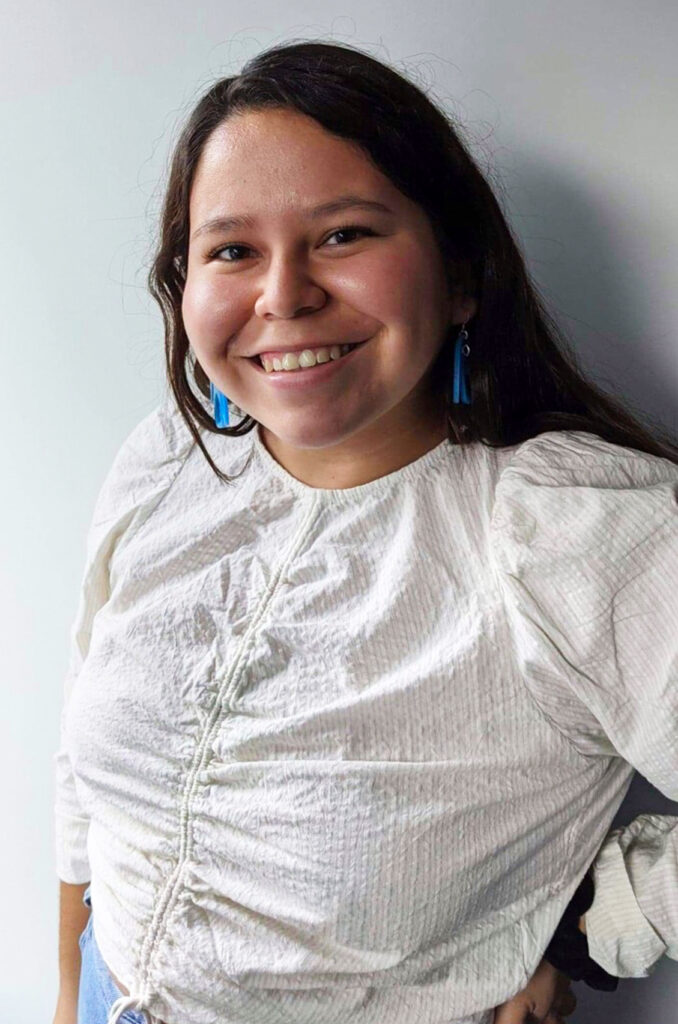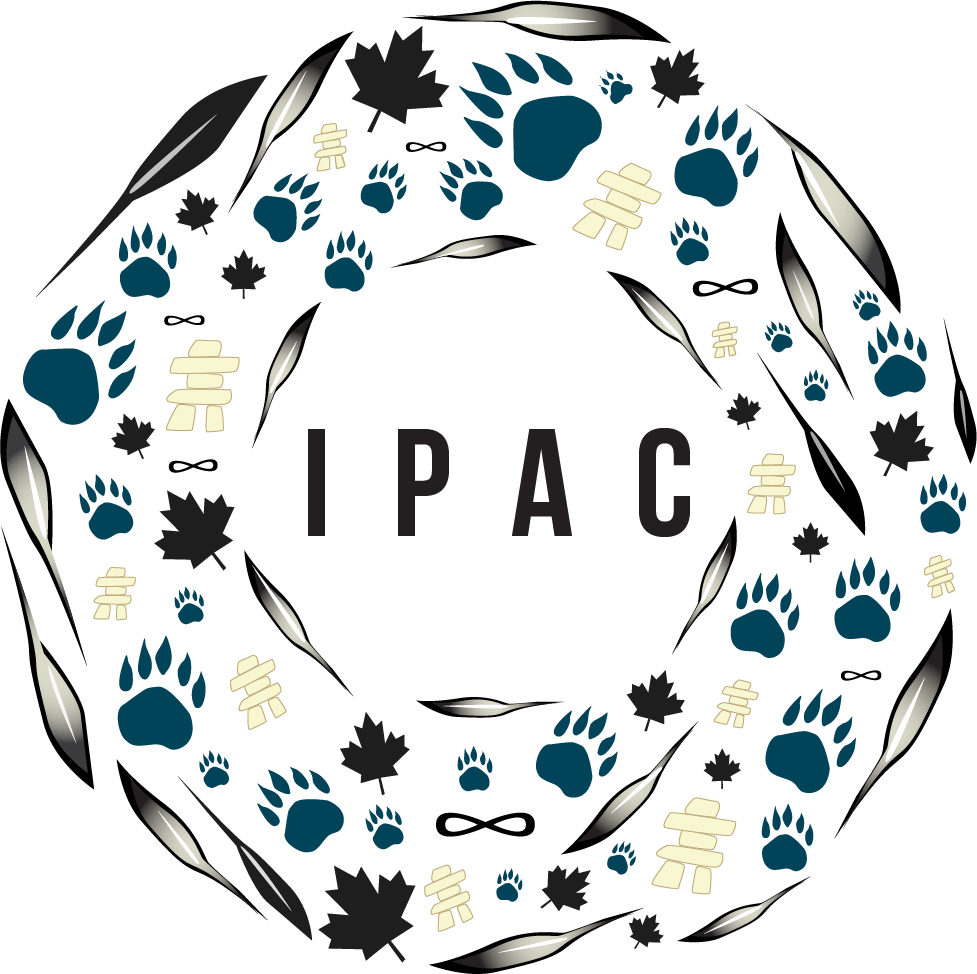RECOGNIZING EXCELLENCE DIANE HILL

DIANE HILL
Firstly introduce yourself and tell us where your home place is. Describe your job/jobs in just under four sentences. Please also provide your title and profession.
She:koli, my name is Diane Hill and I am from the Oneida Nation of the Thames located in southwestern Ontario. I am currently a second-year master’s student in the department of Social Justice Education at the Ontario Institute for Studies in Education (OISE) at the University of Toronto. My work broadly seeks to understand the relationship that Indigenous people have to movements of food sovereignty, environmental justice and climate action in order to advance Indigenous sovereignty.
Title: MA (Master of Arts) Student
What sparked your interest to work in this industry?
Education has always been a passion of mine since I was a child. Growing up in my community gave me the perspective that education can assist in leading you down various paths. Higher education became an interest of mine as I began to notice the way it has potential to empower and support community, as well being able to make change in meaningful ways.
What do you enjoy most about your profession?
I enjoy pursuing graduate studies in the field of education and critical Indigenous Studies as it enables me to learn, write and create meaning in topics I am passionate about. As well, some of the research that I have been involved in allows me to collaborate with my colleagues and classmates in which we can share our ideas and perspectives. It’s a very meaningful and generative process in which we are constantly learning from each other and our work, which I think is important. I am always being challenged by the process of graduate studies, and learning new theories and concepts relevant to my work.
What educational preparation would you recommend for someone who wants to advance in this field?
Before I entered graduate school, I completed a Bachelor of Arts degree in health policy and socio-cultural anthropology at the University of Toronto Scarborough. I honestly didn’t know what graduate school was until I sat down with someone and asked them about it. Most graduate programs have prerequisites such as various degrees, courses, certificates or other requirements to be completed before entering or applying.
I would say if you’re interested in pursuing grad school, look at what programs are available, and what department you may be interested in. If there are any current students, you can get in touch with them to talk about the process of applying or getting your application together! I talked a lot with my professors and other mentors in my undergrad that helped me to make the decision to apply. I would suggest doing some research into the program, department and who you would be working with such as an academic advisor or supervisor and see if these things are a good fit for what you aim to achieve in graduate school.
What helped me to get through my undergrad was having support from various professors and staff at my university. I frequented First Nations House at the University of Toronto a lot to learn from other students and attended workshops.
What does success look like to you for Indigenous youth?
To me, success for Indigenous youth looks like a self-determined future. I think that no one can define what success looks like for youth other than youth. I think as people in various fields and industries, it is up to us to support youth in their goals and desires and find collaborative ways to work together to make those things possible. In my own career and pursuits, I view this as supporting and empowering Indigenous youth through education.
How has a failure, or apparent failure, set you up for later success?
Failure was something that came up a lot during my undergrad. I started out in a computer science co-op program, which I felt unprepared for and faced many academic challenges. I ended up changing directions about this degree (after many failed courses), and this made me feel insecure at times, and also feeling set back in my education.
During this decision, I took courses in humanities and social sciences, something that was new to me then, and found that I had a much clearer sense of purpose with my education in these courses. Because writing was such a core component of these classes, I excelled in them, as writing has always been a personal passion of mine. Through academic writing I was able to shift my educational path and this opened up so many possibilities for me. I don’t think that I would be where I am today without having had the experience in the computer science program I switched out of. It taught me a lot about perseverance, resilience, and that our journeys do not always follow a through line pathway.
Additionally, I came to understand that education can operate as a push out system, and specifically for Indigenous learners, educational institutions can be incredibly harmful places. I gained more compassion for my situation when having this perspective, and I came to understand that my negative self-talk about ‘not feeling smart enough’, or that ‘I don’t work hard’ is false. I transformed this into understanding how universities and higher education creates systems of failure and push out, especially for learners such as Indigenous students who are impacted by racism and colonialism. Instead, I now look at these so-called failures as failures in our education system and not my own personal failures.
What are one to three books that have greatly influenced your life?
Braiding Sweetgrass – Robin Wall Kimmerer
East of Eden – John Steinbeck
Siddhartha – Herman Hesse
Do you volunteer? If so, where and why is that important to you?
I volunteer occasionally for Indigenous organizations/collectives that I am connected to – one of my most recent efforts has been volunteering for the Indigenous Education Network at OISE. I truly enjoy being a part of this community as it’s been very supportive during my graduate studies. I have come to make friends through this space and learn so much from the events, lectures and other services that the network has to offer. I like to volunteer and consider it to be important because I see it as a responsibility to community, and also to support others and offer support in ways that I am able to.
In the last year, what new belief, behavior, or habit has most improved your life?
It sounds super cheesy and very millennial of me, but I started bullet journaling in late 2019 and early 2020. Initially I was suspect of the process as it seemed like a quick fad or trend, but I actually found it helped me to be more mindful and intentional about how I spend my time and organize my time. For example, one thing I include when I am journaling is a gratitude journal, so I write down everyday something that I am grateful for. When I reflect back on it and read those sentences, I am reminded of all that I have to be thankful for.
What are some challenges you think the next Indigenous generation will face in your industry/profession?
I think that being Indigenous in higher education or the academy has always been challenging, and this relates to the fact that post-secondary spaces were not made for us. So, I think that there will always be challenges in terms of entering academic spaces, but what I have witnessed in my lifetime is how these changes have come from the organizing and advocacy that Indigenous youth are making already and since forever. For example, the more expansive cultural opportunities for students, or more awareness about the needs for Indigenous students. I think what is to come next is thinking about how we can theorize Indigenous futures and thinking more about critically about Indigenous sovereignty and self-determination.
What advice would you give to a smart, driven student about to enter the “real world”? What advice should they ignore?
I think a lot about what my mentors have said to me, and a lot of what I am reflecting on is I had a very idealistic and naïve idea about the world or entering school or the workforce or what have you.
If I am thinking about my younger self, I would say something along the lines of: “There’s no reason to rush anything. Everyone truly has their own path, and it’s up to you to make yours. In the moments when you can slow down, do so. And have fun, enjoy moments that you can because time can go by so quickly.”

